Anticancer
How to submit an article:
- Registered users can submit any published journal article that has a unique DOI (Digital Object Identifier) name or link to Research Hub.
- For example, you can paste the full DOI link:
https://doi.org/10.1109/5.771073or just the DOI name:10.1109/5.771073into the field above and click submit. - The person who is first to submit a valid article to Research Hub will forever be credited for it, and every article submission earns you +6 Research Points.
Also known as: Antiproliferative, Antitumor
Related Topics
Published research studies are articles that present the findings of original research that has undergone a peer-review process and has been made publicly available in scholarly journals, books or other media.
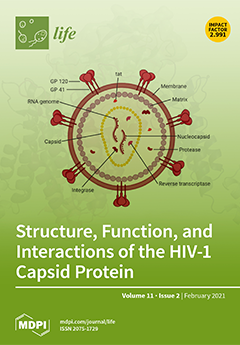
Therapeutic Potential of Pomegranate Extract for Women’s Reproductive Health and Breast Cancer
2024 Oct 03 Life Jang JY, Kim D, Im E, Kim ND
Review Article PCOS Breast Cancer PomegranatePomegranate extract could potentially benefit women's reproductive health, enhance fertility, regulate menstrual cycles, support pregnancy, and help treat polycystic ovary syndrome.
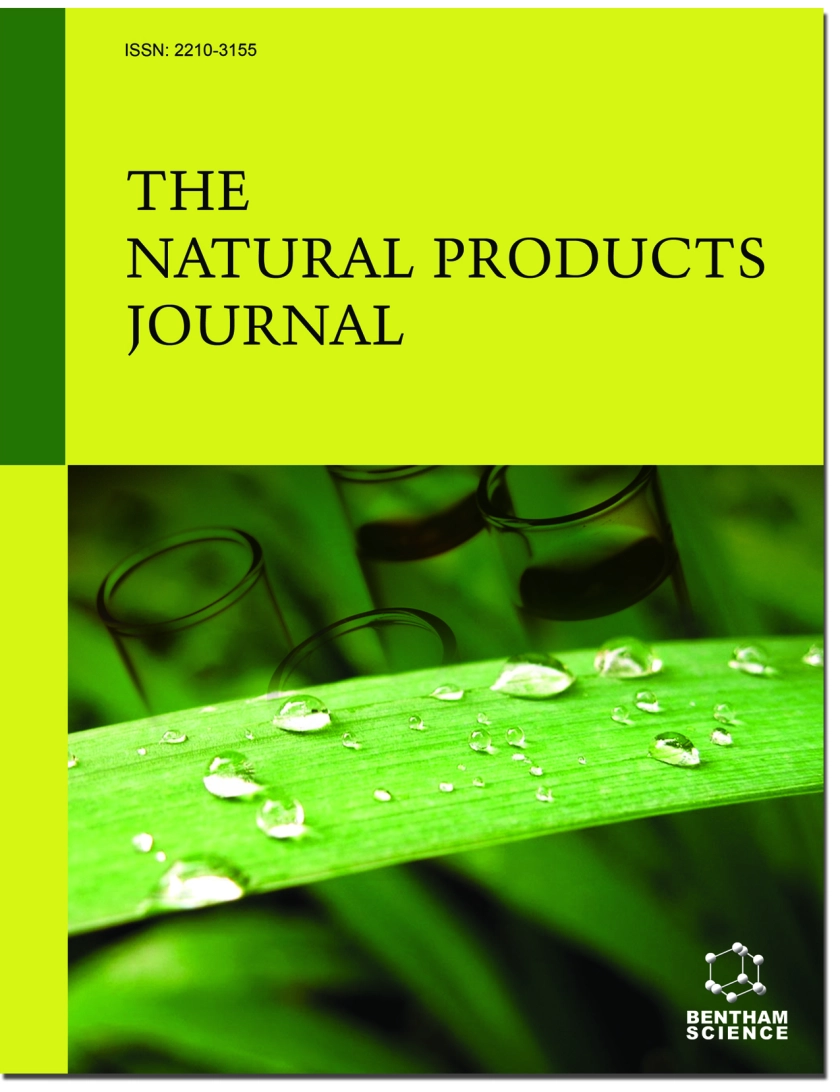
Pumpkin Seeds (Cucurbita spp.) as a Nutraceutical Used In Various Lifestyle Disorders
2024 Feb The Natural Products Journal Wal A, Singh MR, Gupta A, Rathore S, Rout RR, Wal P
Review Article Anticancer Blood Sugar Pumpkin Seed Antioxidant Cardiovascular Disease Depression Anti-ParasitePumpkin seeds are recognised for their medicinal, nutritional, and cosmetic benefits, including anti-diabetic, heart disease prevention, anti-cancer, and antioxidant qualities.

Anticancer and chemopreventive potential of Morinda citrifolia L. bioactive compounds: A comprehensive update
2024 Feb 15 Phytotherapy Research Kitic D, Miladinovic B, Randjelovic M, Szopa A, Seidel V, Prasher P, et al.
Systematic Review Anticancer NoniNoni fruit and its compounds demonstrate significant potential in cancer therapy by inducing apoptosis, arresting cell cycle, inhibiting angiogenesis, and modulating immune system.

Chemical Properties and Biological Activity of Bee Pollen
2023 Nov 25 Molecules Rodríguez-Pólit C, Gonzalez-Pastor R, Heredia-Moya J, Carrera-Pacheco SE, Castillo-Solis F, Vallejo-Imbaquingo R, et al.
Review ArticleBee pollen showcases a range of biological activities, such as anti-inflammatory, antimicrobial, and potential antiviral properties, which could contribute to the creation of innovative therapies.

The whole pomegranate (Punica granatum. L), biological properties and important findings: A review
2023 Oct Food Chemistry Advances Valero-Mendoza AG, Meléndez-Rentería NP, Chávez-González ML, Flores-Gallegos AC, Wong-Paz JE, Govea-Salas M, et al.
Review Article Anticancer Pomegranate Antimicrobial AntiviralPomegranate and its by-products, particularly the peel, contain bioactive compounds with potential antimicrobial, anticancer and antiviral properties.
Research insights are moderated by the Research Hub team and offer an at-a-glance overview of interesting research findings.

2024 Life
Pomegranate extract could potentially benefit women's reproductive health, enhance fertility, regulate menstrual cycles, support pregnancy, and help treat polycystic ovary syndrome.
Review Article Breast Cancer PCOS Pomegranate
Therapeutic Potential of Pomegranate Extract for Women’s Reproductive Health and Breast Cancer
Jang JY, Kim D, Im E, Kim ND

2024 Phytotherapy Research
Noni fruit and its compounds demonstrate significant potential in cancer therapy by inducing apoptosis, arresting cell cycle, inhibiting angiogenesis, and modulating immune system.
Systematic Review Noni
Anticancer and chemopreventive potential of Morinda citrifolia L. bioactive compounds: A comprehensive update
Kitic D, Miladinovic B, Randjelovic M, Szopa A, Seidel V, Prasher P, et al.

2024 The Natural Products Journal
Pumpkin seeds are recognised for their medicinal, nutritional, and cosmetic benefits, including anti-diabetic, heart disease prevention, anti-cancer, and antioxidant qualities.
Review Article Anti-Parasite Antioxidant Blood Sugar Cardiovascular Disease Depression
Pumpkin Seeds (Cucurbita spp.) as a Nutraceutical Used In Various Lifestyle
Disorders
Wal A, Singh MR, Gupta A, Rathore S, Rout RR, Wal P

2023 Molecules
Bee pollen showcases a range of biological activities, such as anti-inflammatory, antimicrobial, and potential antiviral properties, which could contribute to the creation of innovative therapies.
Review Article
Chemical Properties and Biological Activity of Bee Pollen
Rodríguez-Pólit C, Gonzalez-Pastor R, Heredia-Moya J, Carrera-Pacheco SE, Castillo-Solis F, Vallejo-Imbaquingo R, et al.

2023 Food Chemistry Advances
Pomegranate and its by-products, particularly the peel, contain bioactive compounds with potential antimicrobial, anticancer and antiviral properties.
Review Article Antimicrobial Antiviral Pomegranate
The whole pomegranate (Punica granatum. L), biological properties and important findings: A review
Valero-Mendoza AG, Meléndez-Rentería NP, Chávez-González ML, Flores-Gallegos AC, Wong-Paz JE, Govea-Salas M, et al.
Review Articles
Review articles summarise and critically evaluate the current state of research on a specific topic or field by synthesising multiple primary research studies.

Therapeutic Potential of Pomegranate Extract for Women’s Reproductive Health and Breast Cancer
2024 Oct 03 Life Jang JY, Kim D, Im E, Kim ND
Review Article PCOS Breast Cancer PomegranatePomegranate extract could potentially benefit women's reproductive health, enhance fertility, regulate menstrual cycles, support pregnancy, and help treat polycystic ovary syndrome.

Pumpkin Seeds (Cucurbita spp.) as a Nutraceutical Used In Various Lifestyle Disorders
2024 Feb The Natural Products Journal Wal A, Singh MR, Gupta A, Rathore S, Rout RR, Wal P
Review Article Anticancer Blood Sugar Pumpkin Seed Antioxidant Cardiovascular Disease Depression Anti-ParasitePumpkin seeds are recognised for their medicinal, nutritional, and cosmetic benefits, including anti-diabetic, heart disease prevention, anti-cancer, and antioxidant qualities.

Anticancer and chemopreventive potential of Morinda citrifolia L. bioactive compounds: A comprehensive update
2024 Feb 15 Phytotherapy Research Kitic D, Miladinovic B, Randjelovic M, Szopa A, Seidel V, Prasher P, et al.
Systematic Review Anticancer NoniNoni fruit and its compounds demonstrate significant potential in cancer therapy by inducing apoptosis, arresting cell cycle, inhibiting angiogenesis, and modulating immune system.

Chemical Properties and Biological Activity of Bee Pollen
2023 Nov 25 Molecules Rodríguez-Pólit C, Gonzalez-Pastor R, Heredia-Moya J, Carrera-Pacheco SE, Castillo-Solis F, Vallejo-Imbaquingo R, et al.
Review ArticleBee pollen showcases a range of biological activities, such as anti-inflammatory, antimicrobial, and potential antiviral properties, which could contribute to the creation of innovative therapies.

The whole pomegranate (Punica granatum. L), biological properties and important findings: A review
2023 Oct Food Chemistry Advances Valero-Mendoza AG, Meléndez-Rentería NP, Chávez-González ML, Flores-Gallegos AC, Wong-Paz JE, Govea-Salas M, et al.
Review Article Anticancer Pomegranate Antimicrobial AntiviralPomegranate and its by-products, particularly the peel, contain bioactive compounds with potential antimicrobial, anticancer and antiviral properties.
Clinical Trials
Clinical trials are research studies that involve people and are conducted to evaluate the safety and efficacy of new treatments or interventions, such as drugs, medical devices, or behavioural therapies.
Study Protocols
Published study protocols are detailed plans that outline the objectives, methodology, statistical analyses, and organisation of a research study that have been made publicly available for others to review and use as a reference.
Presentation Slides

Review Article
Pomegranate extract could potentially benefit women's reproductive health, enhance fertility, regulate menstrual cycles, support pregnancy, and help treat polycystic ovary syndrome.
Jang JY, Kim D, Im E, Kim ND

Systematic Review
Noni fruit and its compounds demonstrate significant potential in cancer therapy by inducing apoptosis, arresting cell cycle, inhibiting angiogenesis, and modulating immune system.
Kitic D, Miladinovic B, Randjelovic M, Szopa A, Seidel V, Prasher P, Sharma M, Fatima R, Arslan Ateşşahin D, Calina D, Sharifi‐Rad J

Review Article
Pumpkin seeds are recognised for their medicinal, nutritional, and cosmetic benefits, including anti-diabetic, heart disease prevention, anti-cancer, and antioxidant qualities.
Wal A, Singh MR, Gupta A, Rathore S, Rout RR, Wal P

Review Article
Bee pollen showcases a range of biological activities, such as anti-inflammatory, antimicrobial, and potential antiviral properties, which could contribute to the creation of innovative therapies.
Rodríguez-Pólit C, Gonzalez-Pastor R, Heredia-Moya J, Carrera-Pacheco SE, Castillo-Solis F, Vallejo-Imbaquingo R, Barba-Ostria C, Guamán LP

Review Article
Pomegranate and its by-products, particularly the peel, contain bioactive compounds with potential antimicrobial, anticancer and antiviral properties.
Valero-Mendoza AG, Meléndez-Rentería NP, Chávez-González ML, Flores-Gallegos AC, Wong-Paz JE, Govea-Salas M, Zugasti-Cruz A, Ascacio-Valdés JA

Experimental Study
The anthocyanins from the Gardenblue variety of blueberries exhibit strong antiproliferative effects on various cancer cells, especially liver cancer cells.
Zhao F, Wang J, Wang W, Lyu L, Wu W, Li W
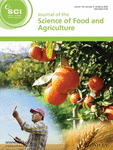
Review Article
Carrot and carotene consumption could diminish the risk of a wide range of negative health consequences, including multiple types of cancer.
Yi X, Li J, Liao D, Peng G, Zheng X, Xu H, Zhang T, Ai J
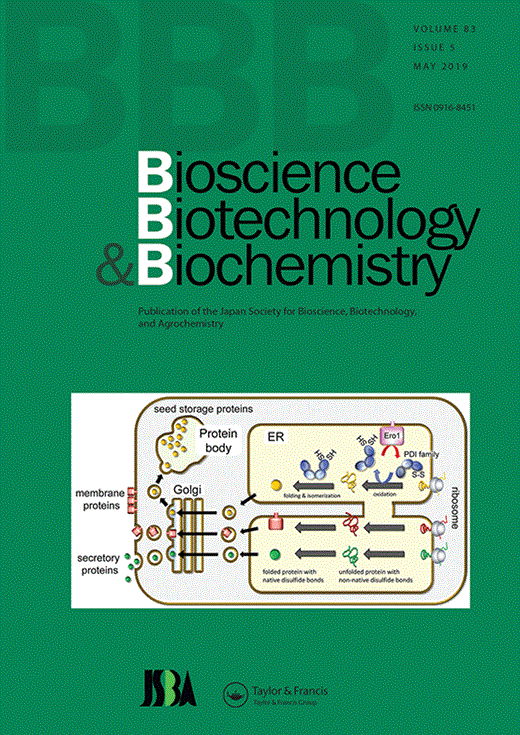
Network Pharmacology
The ethanol extract from adzuki beans significantly reduces lung metastasis and invasion of melanoma cells, showing potential for functional food development.
ITOH T, UMEKAWA H, FURUICHI Y
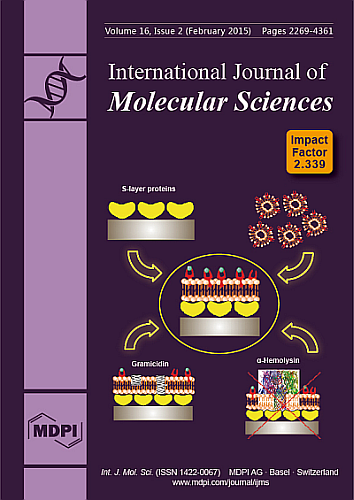
Review Article
Compounds found in green tea, especially EGCG, show significant anti-cancer activity and hold promise as potential anticancer drugs or adjuvants to standard chemotherapy.
Farhan M

Review Article
The underutilized pomegranate peel, full of abundant bioactive substances, could be repurposed for its potential health benefits like anti-inflammatory, anti-cancer, cardiovascular protection, and antibacterial activities.
Mo Y, Ma J, Gao W, Zhang L, Li J, Li J, Zang J
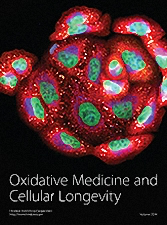
Systematic Review
Ginger, native to Southeast Asia, possesses antioxidant and antiviral properties, contributing to healthy ageing and potential prevention of age-related disorders.
Ozkur M, Benlier N, Takan I, Vasileiou C, Georgakilas AG, Pavlopoulou A, Cetin Z, Saygili EI

Experimental Study
Ethanol and n-hexane extracts of Chrysanthemum indicum reveal potent anticancer activity against HepG2 cancer cells by promoting apoptosis and reducing cell proliferation.
Mehboob Z, Sharif S, Lodhi MS, Zaigham K
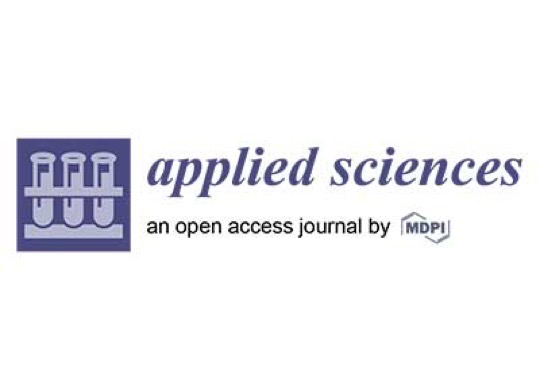
Review Article
Purple carrot roots, rich in bioactive compounds like anthocyanin, may be effective in preventing metabolic syndrome and cancer by reducing inflammation and metabolic changes.
Rasheed H, Shehzad M, Rabail R, Kowalczewski P, Kidoń M, Jeżowski P, Ranjha MMAN, Rakha A, Din A, Aadil RM
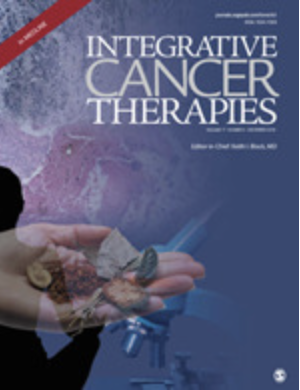
Systematic Review
Noni, a medicinal plant, has illustrated diverse anticancer properties across different cancer models through numerous mechanisms including antitumor and immunomodulatory activities.
Chanthira Kumar H, Lim XY, Mohkiar FH, Suhaimi SN, Mohammad Shafie N, Chin Tan TY

Review Article
Chrysanthemums, popular floricultural crops, not only hold significant ornamental value but also exhibit various therapeutic potentials including antioxidant, antimicrobial, and anticancer activities.
Hadizadeh H, Samiei L, Shakeri A
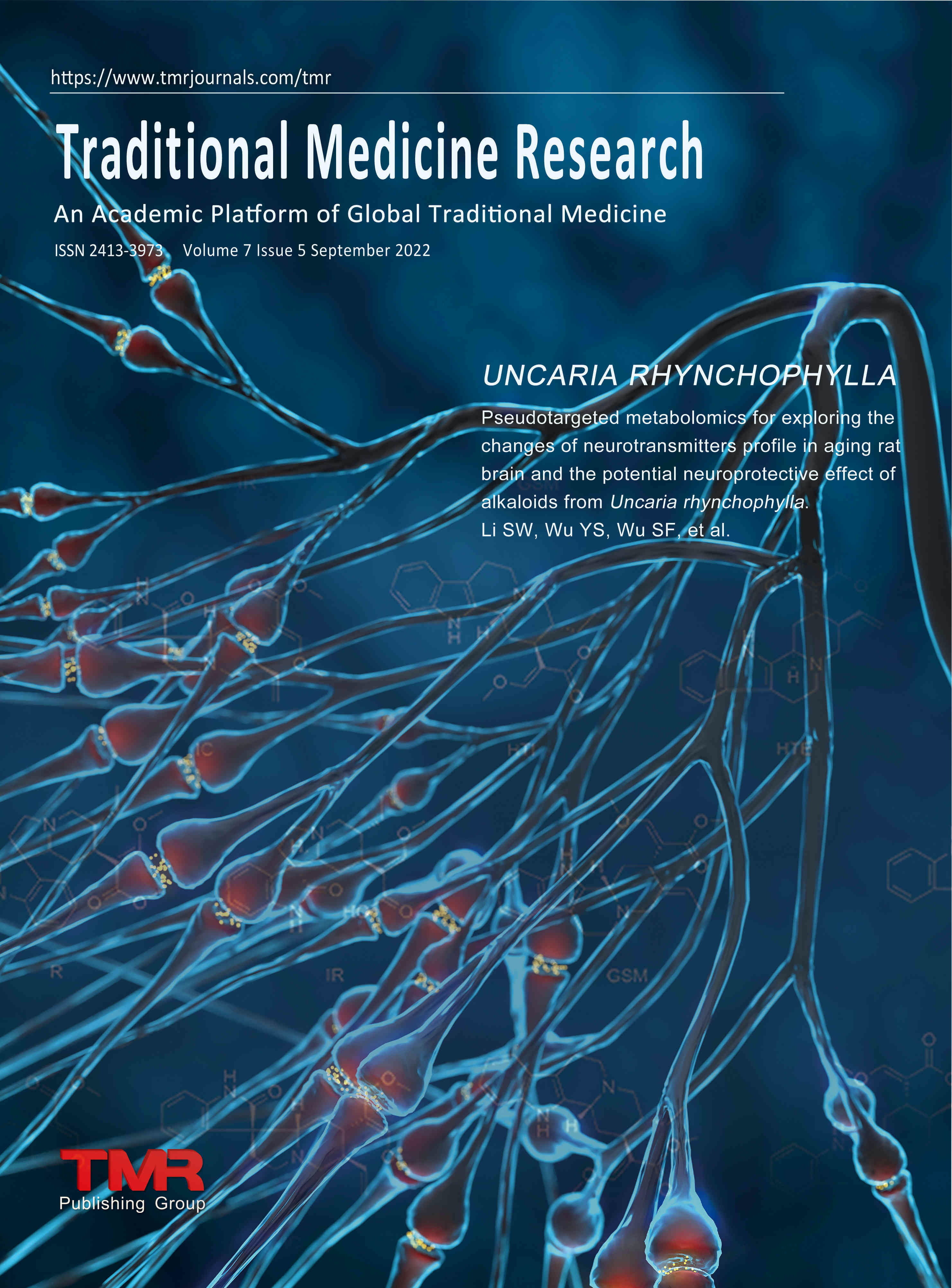
Theoretical Article
The jujube tree bears fruit endowed with substantial nutritional value and contains numerous phytochemical components with reported antioxidant, anti-cancer and neuroprotective properties.
Aafi E, Reza M, Mirabzadeh M
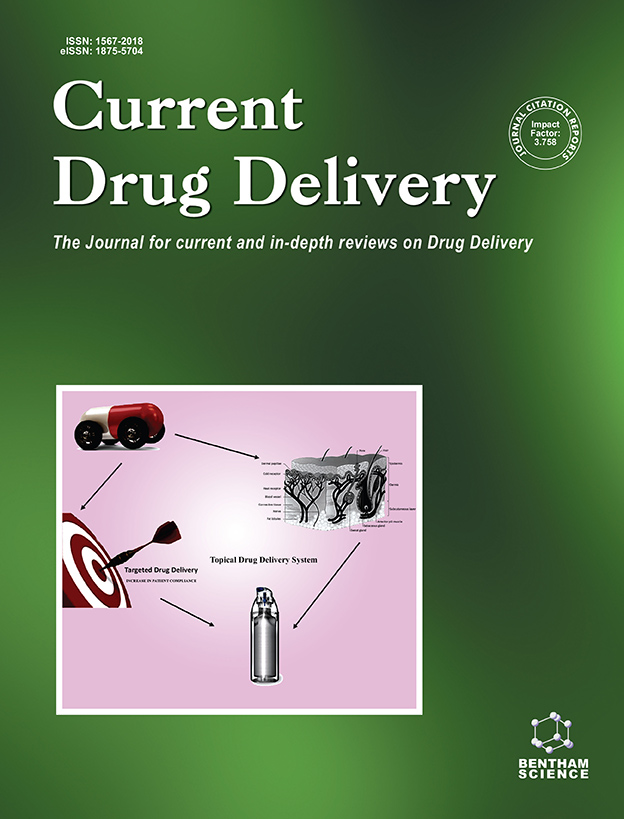
Review Article
Pomegranate juice and its bioactive components may serve as cost-effective, next-generation non-pharmacologic anticancer therapies, particularly against colorectal and prostate cancer.
Hussein L, Gouda M, Buttar HS

Experimental Study
Cocoa bean husk, a by-product of cocoa processing, exhibits potent antioxidant and anticancer effects on prostate cancer cells due to its high phenolic compound content.
Choi J, Yang C, Lim W, Song G, Choi H
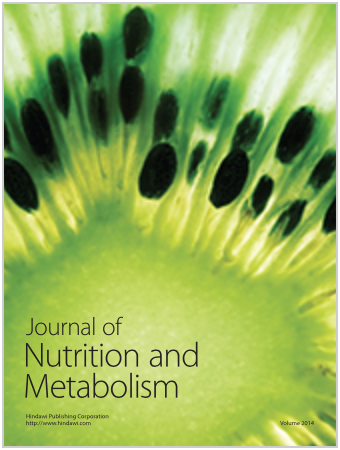
Review Article
The pomegranate plant has a rich inventory of phytochemical constituents showing pharmacological efficiency in treating cardiovascular and endocrine diseases.
Eghbali S, Askari SF, Avan R, Sahebkar A

Review Article
Green tea, coffee, wine, and curry have beneficial health effects due to the polyphenols they contain, which possess both antioxidant and pro-oxidant properties.
Ohishi T, Fukutomi R, Shoji Y, Goto S, Isemura M
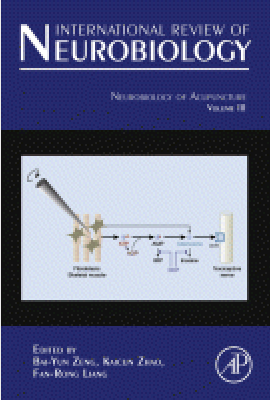
Review Article
Goji berries have significant potential as a natural medicine in anticancer efforts due to their high content of active compounds.
Anna Wawruszaka,Marta Halasaa,Karolina Oklab
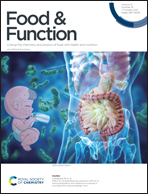
Experimental Study
The Lycium ruthenicum Murr variety of goji berry exhibits a stronger antioxidant activity and antiproliferative effect on cancer cells compared to Lycium barbarum L.
Xiong L, Deng N, Zheng B, Li T, Liu RH

Review Article
Jujube fruits contain a high amount of various bioactive compounds exerting antioxidant, anti-inflammatory, antiobesity, anti-cardiovascular disease, hepatoprotective, antidiabetic, anti-microbial, anticancer, and gastrointestinal-protective effects.
Rashwan, A. K, Karim, N., Shishir, M. Rezaul Islam, Bao, T., Lu, Y., & Chen, W.

Review Article
Pumpkin seeds carry bioactive compounds with antidiabetic, antidepressant, antioxidant, antitumor, and cytoprotective activities, also aiding in microbiological infections and specific organ disorders.
Dotto JM, Chacha JS
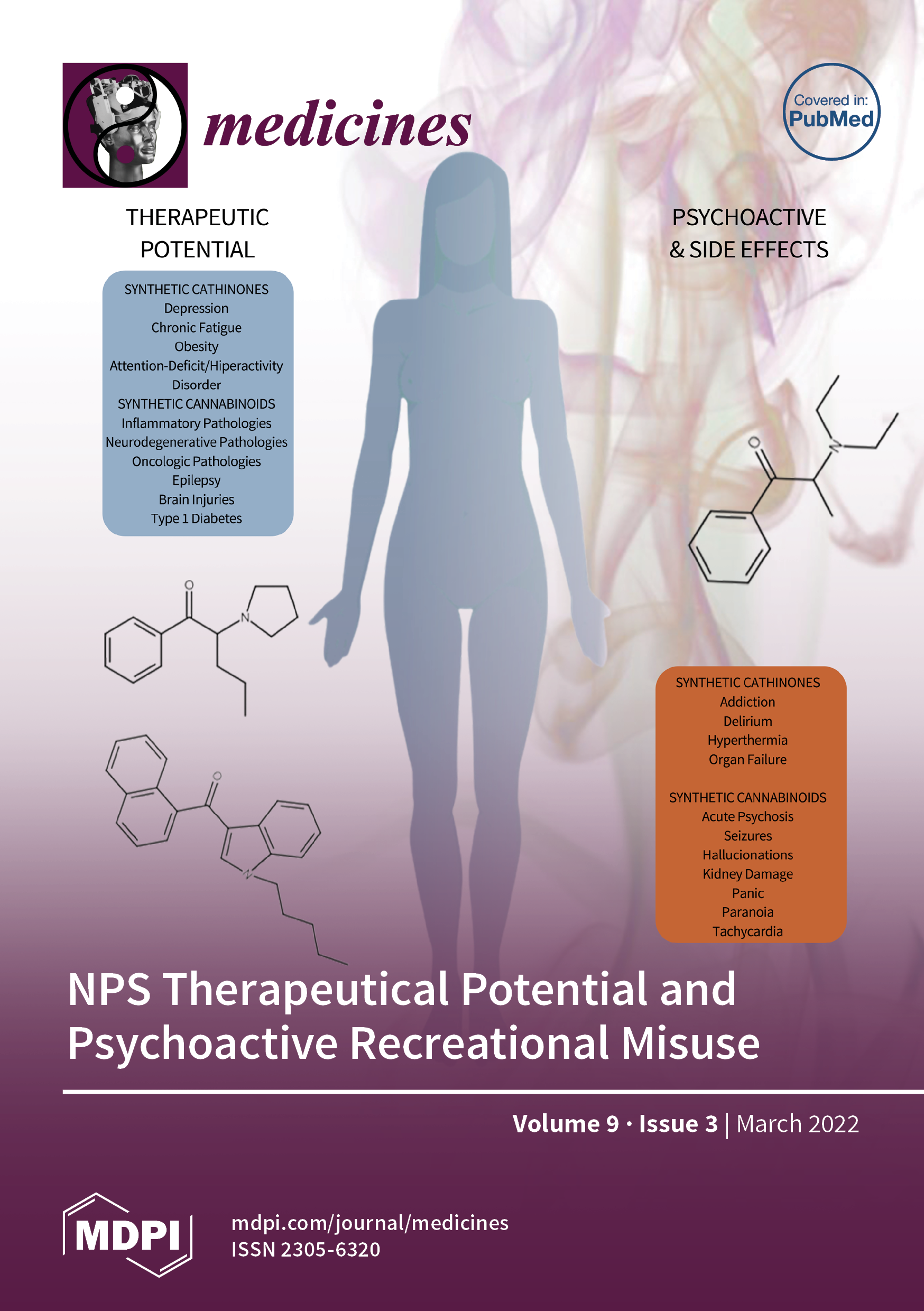
Experimental Study
Pomegranate juice increases the effectiveness of lung cancer treatment with the low dose chemotherapy drug Cisplatin, while simultaneously reducing its toxicity on normal cells.
Nasser M, Damaj Z, Hijazi A, Merah O, Al-Khatib B, Hijazi N, Trabolsi C, Damaj R, Nasser M

Experimental Study
The major components of green tea and coffee, EGCG and CGA respectively, may have anti-cancer effects, though these effects seem to vary for different types of cancer.
Hayakawa S, Ohishi T, Miyoshi N, Oishi Y, Nakamura Y, Isemura M

Systematic Review
The study shows the promising potential of Suan Zao Ren as a multi-effect traditional Chinese medicine derived from the seeds of Ziziphus Jujuba.
Su-Rong He, Chong-Bo Zhao, Jing-Xia Zhang, Jing Wang, Bo Wu, Chun-Jie Wu,

Systematic Review
Clinical trials categorize botanical parts of date palm as being most effective in eight different areas such as obstetrics, oncology, and endocrinology.
Bagherzadeh karimi A, Elmi A, Zargaran A, Mirghafourvand M, Fazljou SMB, araj-Khodaei M, Baghervand Navid R
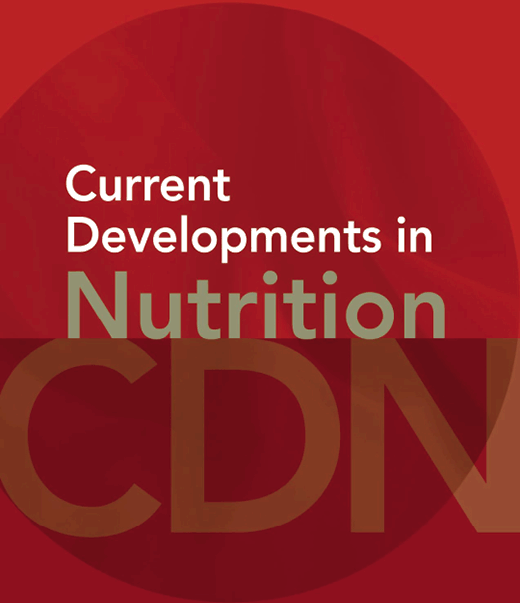
Review Article
Citrus peel flavonoids exhibit a remarkable spectrum of biological activities including anti-inflammatory, anticancer, antiproliferation, antiangiogenesis, antioxidant, cell cycle regulation, and antimetastasis effects.
Nooshin Koolaji, Balakrishnan Shammugasamy, Aaron Schindeler, Qihan Dong, Fariba Dehghani, Peter Valtchev
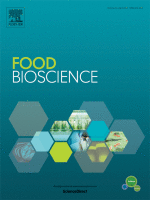
Review Article
Different varieties of dates pose impressive nutritional profiles and exhibit multiple health benefits, including anti-cancer, anti-inflammatory, and cholesterol lowering potential.
Hussain MI, Farooq M, Syed QA
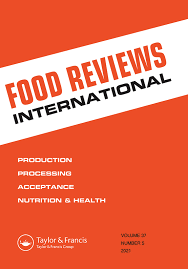
Review Article
Bioactive compounds found in avocado waste products exhibit various biological properties, with potential applications in the food and pharmaceutical industries.
Jimenez P, Garcia P, Quitral V, Vasquez K, Parra-Ruiz C, Reyes-Farias M, Garcia-Diaz DF, Robert P, Encina C, Soto-Covasich J
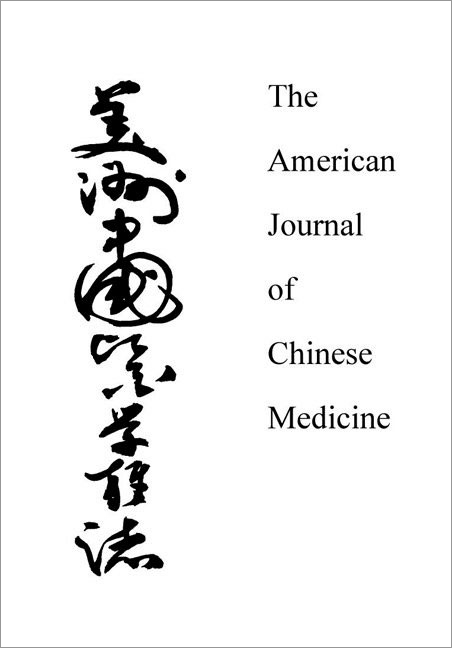
Review Article
The Chrysanthemum indicum L. plant has been discovered to have multiple pharmacological capabilities including anti-inflammatory, antioxidation, antipathogenic, anticancer, immune regulation, and hepatoprotective effects.
Shao Y, Sun Y, Li D, Chen Y

Review Article
Prunus mume fruit extracts display hepatoprotective, anti-inflammatory, antioxidative, antibacterial effects, and show promise for treating cancer and alleviating chemotherapy side-effects.
Bailly C

Review Article
The date fruit contains compounds such as flavonoids that can protect tissues from harm and reduce risks of illnesses like cardiovascular disease and cancer.
Bentrad N, Hamida-Ferhat A

Coix lacryma-jobi sprout extract effectively inhibits cervical cancer cell growth by triggering cell cycle arrest and apoptosis.
Son, E.S., Kim, SH., Kim, Y.O. et al
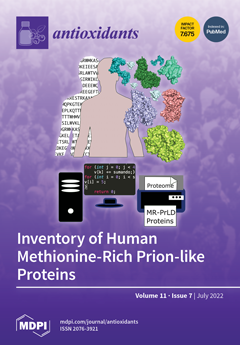
Review Article
Avocado's nutritional and therapeutic properties show potential for novel drug discovery in prevention and treatment of prevalent diseases such as cancer, diabetes, and cardiovascular issues.
Bhuyan , Alsherbiny , Perera , Low , Basu , Devi , Barooah , Li , Papoutsis

Review Article
Cocoa and cocoa products, enriched with polyphenols, have potential health benefits including enhanced vascular function, cancer prevention, and improvement in learning and memory.
E S, Panjikkaran ST, L SC, R RP
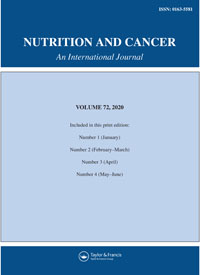
Review Article
Kiwifruit supplementation may be associated with direct and indirect anticancer effects, the former likely due to ascorbic acid-mediated reduction of DNA oxidative injury and cytotoxic effect on cancer cell lines.
Lippi G, Mattiuzzi C
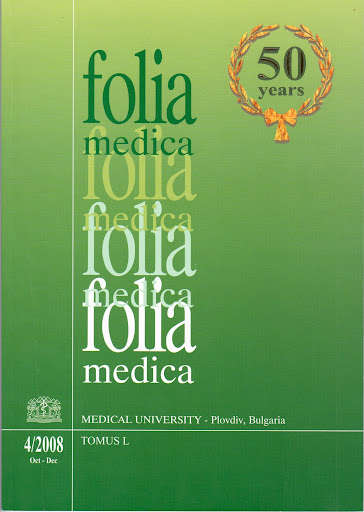
Experimental Study
The pectin-free fraction of Lycium barbarum, or goji berry, strongly inhibits growth in breast cancer cells, and this effect is enhanced by adding polysaccharides.
Georgiev KD, Slavov IJ, Iliev IA.

Experimental Study
The pectin-free fraction from Lycium barbarum fruit exhibits significant antioxidant activity and inhibits the growth of breast cancer cells.
Georgiev KD, Slavov IJ, Iliev IA

Systematic Review
Black pepper, beyond its culinary use, offers medicinal benefits like antimicrobial, antioxidant, anticancer, anti-diabetic, and anti-inflammatory properties mainly attributed to the compound piperine.
Takooree H, Aumeeruddy MZ, Rengasamy KRR, Venugopala KN, Jeewon R, Zengin G, Mahomoodally MF

Systematic Review
The health benefits of goji berries include enhancing hemopoiesis, antiradiation, antiaging, anticancer, improvement of immunity, and antioxidation.
Zheng Feei Ma, Hongxia Zhang, Sue Siang Teh, Chee Woon Wang, Yutong Zhang, Frank Hayford, Liuyi Wang, Tong Ma, Zihan Dong, Yan Zhang, Yifan Zhu,

Systematic Review
Goji berries, rich in antioxidants, confer health benefits including protection against aging, cancer, and radiation, as well as enhancing immunity and blood production.
Zheng Feei Ma, Hongxia Zhang, Sue Siang Teh, Chee Woon Wang, Yutong Zhang, Frank Hayford, Liuyi Wang, Tong Ma, Zihan Dong, Yan Zhang, Yifan Zhu,

Experimental Study
Lemongrass extract has potential as a supplement to chemotherapy, reducing colon cancer growth, enhancing treatment effectiveness, and mitigating side effects like weight loss.
Ruvinov I, Nguyen C, Scaria B, Vegh C, Zaitoon O, Baskaran K, Mehaidli A, Nunes M, Pandey S
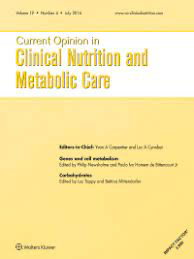
Systematic Review
Most bioactive walnut micronutrients synergize to affect multiple metabolic pathways leading to protection from chronic noncommunicable diseases.
Ros, Emilioa,b; Izquierdo-Pulido, Maríab,c; Sala-Vila, Aleix

Review Article
(-)-Epigallocatechingallate (EGCG), a natural product, has potent anti-proliferation, anti-metastasis, and pro-apoptosis effects on cervical cancer cells, enhancing the effects of conventional drugs.
Wang YQ, Lu JL, Liang YR, Li QS

Experimental Study
Matcha green tea potentially inhibits the growth of breast cancer cells by disrupting metabolic action within the cells and reprogramming their activities.
Bonuccelli G, Sotgia F, Lisanti MP
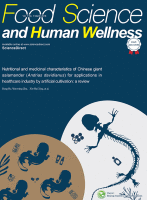
Systematic Review
The consumption of mung beans and sprouts in regular basis are not only providing nutrients, but also maintains the microbial flora in the gut, reduces the absorption of toxic compounds, decreases the menace of obesity, hypercholesterolemia, and cardiovascular diseases, and also prevents cancer and diabetes.
Kumar Ganesan, Bao junXu

Review Article
Honey, a natural food supplement, emerges as a potent therapeutic antioxidant with diverse medicinal effects, including wound healing, antibacterial, anti-inflammatory, antifungal, antiviral, and antidiabetic properties, suggesting its potential as a novel antioxidant in managing oxidative stress-related diseases.
Ahmed S, Sulaiman SA, Baig AA, Ibrahim M, Liaqat S, Fatima S, Jabeen S, Shamim N, Othman NH
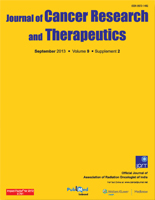
Review Article
Among the bioactive compounds present in jujube fruit, triterpenic acids and polysaccharides have antiproliferative and anticancer effects on various cancer cell lines.
Zoya Tahergorabi, Mohammad Reza Abedini, Moodi Mitra, Mohammad Hassanpour Fard, and Hossein Beydokhti
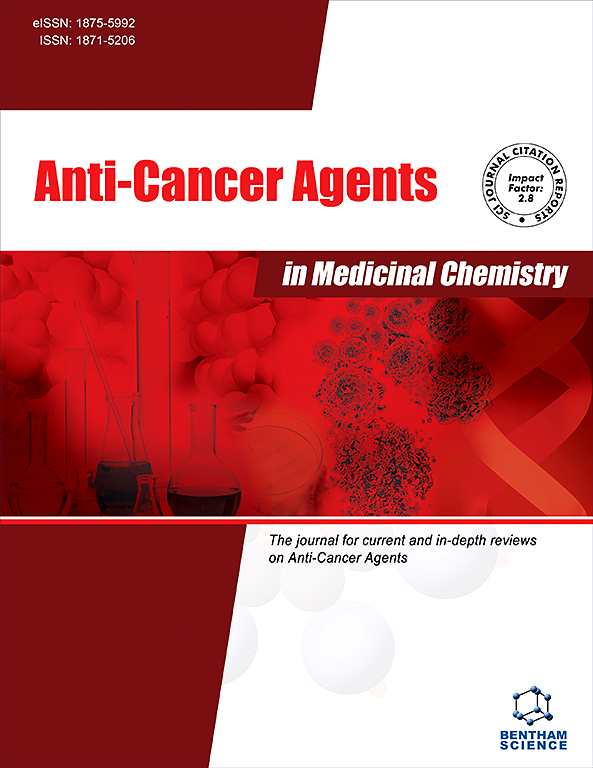
Review Article
Blueberries, due to their phenolic compounds, show potential as both dietary and supplemental anti-cancer agents by inhibiting cancer cell growth and promoting apoptosis.
Johnson S, Arjmandi B
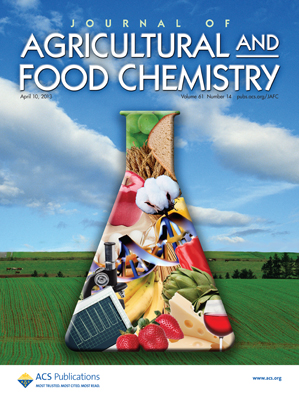
Review Article
Recent phytochemical studies of jujube fruits have shed some light on their biological effects, such as the anticancer, anti-inflammatory, antiobesity, immunostimulating, antioxidant, hepatoprotective, and gastrointestinal protective activities and inhibition of foam cell formation in macrophages.
Gao QH, Wu CS, Wang M.
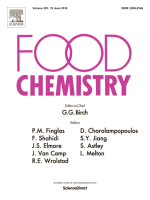
Experimental Study
Adzuki bean exhibited the strongest antiproliferative properties in a dose-dependent manner against all digestive system cancer cell lines, ovary cancer cell SK-OV-3 and breast cancer cell MCF-7 among all legumes tested.
Xu B, Chang SKC
Executive Summary
Write an executive summary in the form of a blog article on the topic of "Research into Chinese medicine treatment for Anticancer" summarising the research below and using language that can be easily understood by patients and avoiding medical jargon using a professional and caring tone of voice.
Write an executive summary in the form of a blog article on the topic of "Researched Chinese medicine treatments for Anticancer" summarising the research below in an objective and easy to understand way, and using language that can be easily understood by patients. Group the article into Chinese medicine treatments first, followed by nutrition and other treatments. Avoid using medical jargon and use a professional and caring tone of voice.
Write me a concise but easy to understand executive summary on the topic of "Chinese medicine treatments for Anticancer" based on the following research that I will give you. Your summary should be 2 paragraphs long in Australian English spelling and include references to the studies.
A Review Article published in 2024 in the journal Life found that Pomegranate extract could potentially benefit women's reproductive health, enhance fertility, regulate menstrual cycles, support pregnancy, and help treat polycystic ovary syndrome. In establishing the potential benefits of pomegranate extract in women's reproductive health, a wide array of methods was employed. Primarily, these included in vitro studies, animal modeling and certain clinical trials. Analyses of the antioxidant properties of the extract were done to ascertain its effectiveness in reducing oxidative stress and consequently, improving fertility. The influence of pomegranate extract on hormonal imbalances and menstrual regulation was also studied. Discussions on the results emphasized the potential of pomegranate extract in supporting women's reproductive health. The extract was found beneficial in enhancing fertility, regulating menstruation and supporting pregnancy. Further, it could help in polycystic ovary syndrome therapy by improving insulin sensitivity and reducing oxidative damage. Its rich nutrient composition was appreciated for potentially fostering placental development and fetal growth, thus possibly mitigating the risk of early birth. Apart from reproductive health, some studies pointed towards pomegranate extract's potential anticancer properties, primarily against breast cancer.
A Systematic Review published in 2024 in the journal Phytotherapy Research found that Noni fruit and its compounds demonstrate significant potential in cancer therapy by inducing apoptosis, arresting cell cycle, inhibiting angiogenesis, and modulating immune system. In this study, a systematic review was put forth to scrutinize the therapeutic effectiveness of Morinda citrifolia L., commonly known as Noni, specifically looking into its effects on various forms of cancer. The review employed an extensive search of various scientific databases to gather relevant literature. This included both in vitro and in vivo studies, as well as clinical trials, specifically focusing on the outcomes of Noni fruit and its phytoconstituents - anthraquinones, flavonoids, sugar derivatives, and neolignans - on cancer. A carefully structured keyword and criteria search ensured a robust collection and analysis of data. The plethora of studies compiled point out to Noni's complex role in cancer therapy, underlining its various bioactive elements and their methods of activity. Significant anticancer and chemopreventive potential of Noni was observed, establishing it as potentially a safe and effective option in cancer prevention and treatment.
A Review Article published in 2024 in the journal The Natural Products Journal found that Pumpkin seeds are recognised for their medicinal, nutritional, and cosmetic benefits, including anti-diabetic, heart disease prevention, anti-cancer, and antioxidant qualities. The review article undertakes a comprehensive exploration of the nutraceutical importance of pumpkin seeds. The methodology includes an examination of the various known substances in the seeds, such as phytoestrogens, unsaturated fatty acids, and vitamin E. The study then delves into the different benefits and therapeutic uses of these components stretching from medicinal to nutritional to cosmetic applications. The results of this research are diverse and impressive, with implications for several major health sectors. Their potential anti-diabetic and hypoglycemic properties could suggest a significant role in the management and prevention of diabetes. Meanwhile, the seeds' potential in cardiovascular disease prevention could help to address one of the most pressing global health issues. Moreover, potential anti-cancer properties imply that these seeds could even have a part to play in cancer prevention. The review also described potential additional qualities, such as antidepressant, anti-helminthic (parasite-removing), and antioxidant effects.
A Review Article published in 2023 in the journal Molecules found that Bee pollen showcases a range of biological activities, such as anti-inflammatory, antimicrobial, and potential antiviral properties, which could contribute to the creation of innovative therapies. The methodology used in the study involved analysing a diverse array of pollen types, in combination with their various chemical compositions. The primary aim of this was to updatedly assess the bioactive constituents present in bee pollen and consider the therapeutic possibilities they present. A focus of the study was on beehive pollen since it is a rich natural source of proteins and nutrients and exhibits immense chemical and therapeutic potential. Discussion of results emphasized that the range of biological activities associated with bee pollen is truly remarkable. This activity ranges from anti-inflammatory and antimicrobial properties to potential antiviral and anticancer applications. Despite the challenge presented in fully understanding the vast array of biological properties across various pollen sources, this study has succeeded in emphasizing the potential extent of the therapeutic effectiveness of bee pollen. Its potential contribution on the path to discovering innovative therapies cannot be underestimated.
A Review Article published in 2023 in the journal Food Chemistry Advances found that Pomegranate and its by-products, particularly the peel, contain bioactive compounds with potential antimicrobial, anticancer and antiviral properties. In the methodological approach of the study, a comprehensive review was undertaken to collate information on the bioactive components found within pomegranates and their by-products (aril, seed, and peel). The study emphasized the pomegranate peel's properties owing to its high content of the bioactive compounds. The aim was to elucidate the nutritional and functional aspects of pomegranates, particularly as a functional food. The results outlined that pomegranates, especially their peel, contain bioactive compounds, including punicalagin, punicalin, ellagic acid, punicic acid, and anthocyanins. Therefore, they have potential functional properties such as antimicrobial, anticancer, and antiviral characteristics. These results suggest that pomegranates could be explored to develop nutraceutical or functional food products due to their profound properties. The peel of the pomegranate, specifically, showcases significant potential for development due to its higher bioactive compound content compared to other parts of the fruit.
A Experimental Study published in 2023 in the journal Molecules found that The anthocyanins from the Gardenblue variety of blueberries exhibit strong antiproliferative effects on various cancer cells, especially liver cancer cells. 65 varieties of blueberries were collected, focusing on their nutritional and functional values. Among these, the Gardenblue variety showed the highest anthocyanin content in fresh fruit. This content was further increased through the process of ultrasound-assisted solvent extraction and macroporous resin absorption, transforming it into a dried powder. Biological experiments were then conducted to determine the antiproliferative effects of Gardenblue anthocyanins on various cancer cell strains, such as cervical, liver, breast, and lung cells. Furthermore, these anthocyanins were combined with the chemotherapy drugs, cisplatin and doxorubicin, to assess any potential enhanced antiproliferative effects. The research results confirmed that Gardenblue anthocyanins exert a substantial antiproliferative effect on multiple cancer cell types, particularly hepatoma or liver cancer cells. These anthocyanins displayed no evident toxic effects, as measured by the MTT assay, a laboratory colorimetric technique. Notably, the antiproliferative benefits were amplified when the anthocyanins were combined with doxorubicin, a treatment for liver cancer. Analysis suggests that the anthocyanins might induce cell apoptosis (cell death) by bonding with DNA in a manner that modifies or damages the DNA, thus preventing cell proliferation. This suggests potential application of Gardenblue anthocyanin extract as a functional agent against liver cancer cells.
A Review Article published in 2023 in the journal Journal of the Science of Food and Agriculture found that Carrot and carotene consumption could diminish the risk of a wide range of negative health consequences, including multiple types of cancer. An umbrella review methodology was adopted to identify connections between carrot and carotene intake and various health outcomes. We turned to databases such as Web of Science, PubMed, and Embase to find the needed data. The analysis included the collected evidence from both interventional and observational studies that focused on carrots, carotene, and any related health impact. To estimate the summary effect size for each correlation, both random and fixed effects models were employed. The study reviewed a total of 1329 studies and utilized the data from 30 meta-analyses with 26 health outcomes that fit the eligibility requirements. These featured outcomes related to various types of cancer, fractures, age-related cataract, sunburn, and Alzheimer's disease. The associations were analyzed between the health outcomes and the intake of carrots, intake of carotene, and serum carotene levels.
A Network Pharmacology published in 2023 in the journal Bioscience, Biotechnology, and Biochemistry found that The ethanol extract from adzuki beans significantly reduces lung metastasis and invasion of melanoma cells, showing potential for functional food development. The methodology of the study involved extracting the 40% ethanol eluent from the fraction of hot-water extract from adzuki beans adsorbed onto a type of resin. This extract, dubbed EtEx.40, was then tested on B16-BL6 melanoma cells, examining specifically its effects on adhesion, migration, and invasion into extracellular matrix components and their invasion into reconstituted basement membrane (colloquially referred to as matrigel), while ensuring it did not affect cell proliferation in vitro. The results illustrated a significant difference in the presence of tumor colonies when treated with EtEx.40. The extract showed a considerable inhibitory effect on the experimental lung metastasis, as well as the invasion of the melanoma cells. Furthermore, the adhesion and migration of the melanoma cells into the extracellular matrix components were also reduced. The results demonstrated a strong antimetastatic role of the ethanol extract of adzuki beans.
A Review Article published in 2022 in the journal International Journal of Molecular Sciences found that Compounds found in green tea, especially EGCG, show significant anti-cancer activity and hold promise as potential anticancer drugs or adjuvants to standard chemotherapy. The study used a combination of epidemiological and laboratory studies to examine the effects of catechins in green tea on combating cancer. The researchers focused their attention on the four main catechin derivatives found in green tea: epicatechin, epigallocatechin, epicatechin gallate, and epigallocatechin gallate—the latter found to be most potent. Attention was given to the quantity of hydroxyl groups and the presence of certain structural groups in these compounds, and how these factors affected antioxidant activity. The study centered around the effects of catechins on tumor survival, proliferation, invasion, angiogenesis, and metastasis. By doing this, the researchers could observe the influence of the identified compounds on the various processes that lead to the development and spread of cancer. The main point of observation was the capacity of catechins to neutralize reactive oxygen species, a key facet in their anti-cancer activity.
A Review Article published in 2022 in the journal Frontiers in Nutrition found that The underutilized pomegranate peel, full of abundant bioactive substances, could be repurposed for its potential health benefits like anti-inflammatory, anti-cancer, cardiovascular protection, and antibacterial activities. This paper conducts a miniature review of the characterization and physiological functions of the key bioactive compounds present in pomegranate peel. The exploration underscores the main phenolic compounds in the peel, illustrating substances such as tannins, flavonoids, phenolic acids, dietary fibers, alkaloids, minerals, and vitamins. A deep understanding of these components and their potential benefits is vital to the study and future applications. The research finds that these core components essentially function as antioxidants, either enhancing oxidative biomarkers or proactively neutralizing reactive oxygen species. By establishing these key functions, it essentially links these activities to a broader context of benefits, including but not limited to anti-inflammatory, anti-cancer, cardiovascular protection, and antibacterial attributes, thereby indicating a potential for substantial health benefits. With comprehensive understanding and appropriate application of these substances, the pomegranate peels, often classified as waste, could find a new life as robust health-enhancing elements.
A Systematic Review published in 2022 in the journal Oxidative Medicine and Cellular Longevity found that Ginger, native to Southeast Asia, possesses antioxidant and antiviral properties, contributing to healthy ageing and potential prevention of age-related disorders. The study explored the natural benefits of ginger, a plant native to Southeast Asia renowned for its culinary and medicinal uses. The approach focused on examining the plant's antioxidant, anti-inflammatory, anticancer, antimicrobial, and particularly antiviral properties from its rich collection of antiviral compounds. The process involved digging into accumulated evidence that suggests ginger's role in promoting healthy ageing, reducing morbidity, and prolonging a healthy lifespan, thus providing a natural solution for an age-old problem. In terms of results, the examination of evidence proved affirming. Ginger displayed significant potential in boosting healthy ageing, reducing the risk of age-related disorders, and extending a wholesome life expectancy due to its inherent properties. The plant's antioxidant characteristics played a key role in these outcomes, along with its anti-inflammatory and antiviral attributes. In essence, the research unfolded a rather underexplored potential of a common natural product in tackling age-induced health conditions.
A Experimental Study published in 2022 in the journal Pak-Euro Journal of Medical and Life Sciences found that Ethanol and n-hexane extracts of Chrysanthemum indicum reveal potent anticancer activity against HepG2 cancer cells by promoting apoptosis and reducing cell proliferation. The research methodology involved extracting compounds from Chrysanthemum indicum using ethanol and n-hexane. These extracts were then applied to HepG2 cancer cells. The study then carefully examined the effect on cell viability and proliferation, as well as indications of apoptosis, in the treated cells compared to untreated control cells. In addition to this, the antioxidative capabilities and antioxidative scavenging activity of the extracts were assessed, particularly focusing on their ability to neutralize nitric oxide, DPHH radicals, H2O2, and superoxide. The results of this process demonstrated that both the ethanol and n-hexane extracts of Chrysanthemum indicum exhibited significant anticancer activity. This was evidenced by a marked decrease in cell viability and proliferation in the treated cancer cells, alongside an increase in indicators of apoptosis. Particularly, the ethanol extract showed more potent anticancer activity and antioxidative capability than the n-hexane extract. The treated cancer cells also showed greater antioxidative scavenging activity, further hinting at the antioxidant potential of these plant extracts.
A Review Article published in 2022 in the journal Applied Sciences found that Purple carrot roots, rich in bioactive compounds like anthocyanin, may be effective in preventing metabolic syndrome and cancer by reducing inflammation and metabolic changes. The methodology employed in the research deeply studies the role of purple carrot’s main bioactive compounds against metabolic syndrome and cancer. The main focus lies on anthocyanin, a phenolic compound present in purple carrot roots. This natural food source was shifted towards as a healthier nutritional approach instead of dietary supplements. The research leans on the effectiveness of these compounds in evading or delaying the onset of cardiovascular diseases, obesity, diabetes, and cancer by inhibiting inflammatory effects. The discussion primarily surrounds the role of bioactive compounds found in purple carrots, specifically anthocyanin, in their potential prevention of metabolic syndrome and cancer. The study focused on how these components could disrupt the onset of cardiovascular disease, obesity, diabetes, and similar health issues. The results suggest that these compounds were successful in decreasing metabolic changes and inflammation. It has been suggested that purple carrots' inherent components might serve as a major tool in the prevention and treatment of metabolic syndrome and cancer.
A Systematic Review published in 2022 in the journal Integrative Cancer Therapies found that Noni, a medicinal plant, has illustrated diverse anticancer properties across different cancer models through numerous mechanisms including antitumor and immunomodulatory activities. A systematic review was undertaken to compile scientific evidence on the anticancer properties of Noni. The process involved the use of predefined search terms across five electronic databases - MEDLINE, CENTRAL, LILACS, Web of Science, and EBSCOHost. As a result, 51 clinical and preclinical studies, of which 41 were efficacy and 10 safety studies, were used for this review. The results of this review demonstrated that Noni exhibited various anticancer properties across differing cancer models. These effects were undertaken through multiple mechanisms ranging from antitumor, antiproliferative, and pro-apoptotic to antiangiogenesis, antimigratory, anti-inflammatory, and immunomodulatory activities. This underscores the potential value of Noni as a medicinal plant in cancer treatment.
A Review Article published in 2022 in the journal South African Journal of Botany found that Chrysanthemums, popular floricultural crops, not only hold significant ornamental value but also exhibit various therapeutic potentials including antioxidant, antimicrobial, and anticancer activities. The method involved in this research aimed at studying the genus Chrysanthemum through a decade-long review (2010-2020) of scientific evidence, focusing on its therapeutic potential, phytochemistry, and pharmacological activities. Various phytochemical compounds including flavonoids, terpenoids, polysaccharides, and unsaturated fatty acids, which are present in the genus Chrysanthemum, were identified. In addition, the taxonomy, distribution, horticultural, and traditional uses of the genus were also studied. The results demonstrated that Chrysanthemum species show numerous potential medicinal benefits, ranging from antioxidant to antimicrobial, anti-inflammatory, anticancer, anti-allergic, anti-obesity, immune regulation, hepatoprotective and nephroprotective activities. The research also underlined the opportunity of medicinal exploitation of the genus Chrysanthemum, given the extreme popularity of these plants and the wide range of phytochemical compounds they contain. The ornamental, medicinal, environmental, and industrial values of these plants further establish them as leading floricultural crops.
A Theoretical Article published in 2022 in the journal Traditional Medicine Research found that The jujube tree bears fruit endowed with substantial nutritional value and contains numerous phytochemical components with reported antioxidant, anti-cancer and neuroprotective properties. The research implemented an analysis of the jujube tree, its fruit, and its long history of usage in traditional medicine, focusing primarily on its use in traditional Persian and Chinese medicines. The varied geographical distribution of the tree was studied, especially its presence in tropical and subtropical regions across Europe and Asia. Researchers took into account the tree’s resilience to soil salinity and alkalinity as part of its general characteristics. The core of the study involved an in-depth investigation into the nutritional composition and pharmacological properties of the jujube fruit. The fruit's contents were categorized into proteins, minerals, vitamins, organic acids, and carbohydrates. Furthermore, a range of phytochemical components such as polyphenols, flavonoids, terpenoids, anthocyanins, alkaloids, and carotenoids were identified. Research noted both the fruit's nutraceutical and cosmeceutical potential. It also explored the medicinal properties of all elements of the plant, not just the fruit. The physiological impacts of the jujube were also evaluated across various medical contexts, seeking to understand its impact on different organs and tissues, as well as its influence on various health conditions and concerns. Culminating in the identification of antioxidant, anti-cancer, antimicrobial, neuroprotective, cardioprotective, hepatoprotective properties. Noteworthy, are also its health-promoting effects, with strong references to anti-aging properties.
A Review Article published in 2021 in the journal Current Drug Delivery found that Pomegranate juice and its bioactive components may serve as cost-effective, next-generation non-pharmacologic anticancer therapies, particularly against colorectal and prostate cancer. Methodology: The present review was undertaken to provide current information on the impact of pomegranate juice and its bioactive elements, critically focusing on the effects on the most common six types of cancer. The inherent polyphenolic compounds of pomegranate, such as ellagitannins and punicalagin, are known to have substantial antioxidant capability which has been evaluated through in vitro and in vivo studies. These compounds' ability to avert free radicals and design metal-chelates in biological tissues have offered a useful basis to extrapolate their impact on various types of cancers. Discussion of Results: The findings indicate that the antioxidant and anti-inflammatory properties of pomegranate possess significant antimutagenic and antiproliferative activities, which proved to be beneficial in modifying gene expression, moderating cellular mechanisms, and limiting the metastasis of cancerous cells. In addition to this, there are reports from a few clinical trials showing the potential of pomegranate ingredients to prevent and treat cancer, notably colorectal and prostate cancer. It’s been noticed that the pomegranate driven therapies may prove to be a cost-effective alternative to costly chemotherapies which often carry drug resistances and severe side effects. Such therapies could offer lesser side effects, making them potential candidates for future non-pharmacologic anticancer treatments.
A Experimental Study published in 2021 in the journal Molecular & Cellular Toxicology found that Cocoa bean husk, a by-product of cocoa processing, exhibits potent antioxidant and anticancer effects on prostate cancer cells due to its high phenolic compound content. The methodology of the study involved fractionating ethanol crude extract of cocoa bean husk (CBH) and comparing the total polyphenol and flavonoid content, as well as radical scavenging activities, of the various fractions. The phenolic compounds present in the ethanol ethyl acetate (EAF) and butanol (BF) fractions were further analysed using High-Performance Liquid Chromatography (HPLC). These fractions were then applied to prostate cancer cell lines PC3 and DU145 to ascertain their impact. The results indicated that the ethyl acetate fraction exhibited the highest phytochemical content and antioxidant activity, closely followed by the butanol fraction. The presence of abundant phenolic compounds, namely catechin, epicatechin, and procyanidin B, was observed in both fractions. Moreover, both fractions induced apoptosis and DNA fragmentation in the prostate cancer cells in a concentration-dependant manner, demonstrating their potential anticancer effects.
A Review Article published in 2021 in the journal Journal of Nutrition and Metabolism found that The pomegranate plant has a rich inventory of phytochemical constituents showing pharmacological efficiency in treating cardiovascular and endocrine diseases. The researchers set out to review both traditional and scientific applications of P. granatum focusing on its phytochemical content and potential for aiding in drug development. They gathered relevant information through both classic herbal literature and electronic databases, which included renowned platforms such as PubMed, Scopus, and ScienceDirect. The culmination of traditional and contemporary research showed an array of phytochemical constituents in P. granatum, including polyphenolics, flavonoids, anthocyanosides, alkaloids, lignans, and triterpenes. Randomized controlled trials indicated these constituents demonstrate pharmacological activity, particularly against diseases like diabetes, cardiovascular disease, oral cavity disorders, endocrine disorders, and even cancer. The review, therefore, not only points to the traditional uses of P. granatum but underscores their validation through scientific support.
A Review Article published in 2021 in the journal Molecules found that Green tea, coffee, wine, and curry have beneficial health effects due to the polyphenols they contain, which possess both antioxidant and pro-oxidant properties. The research leverages epidemiological studies, clinical trials, cell-based studies and animal tests to examine the effects of green tea, coffee, wine, and curry -- and their key polyphenols -- on human health. The polyphenols investigated include epigallocatechin gallate in green tea, chlorogenic acid in coffee, resveratrol in wine, and curcumin in curry. The study concentrates on the workings of these polyphenols, primarily focusing on reactive oxygen species (ROS), and how they perform both anti- and pro-oxidant functions, fundamentally influencing different enzymes and factors with health contributions. In the discussion of the results, it is mentioned that the anti-oxidative actions of these polyphenols assist in the scavenging of ROS and the downregulation of the nuclear factor-κB, yielding beneficial anti-inflammatory effects. Conversely, their pro-oxidant actions appear to elevate ROS production, encouraging the activation of 5'-AMP-activated protein kinase that regulates different enzymes and factors for health improvement. However, the exact mechanism of how these polyphenols exhibit either pro- or anti-oxidant effects remains unclear. Also, the research underscores that while many studies note their health benefits, some others show no positive effects on health conditions such as obesity, suggesting that outcomes could be influenced by various study factors.
A Review Article published in 2021 in the journal International Review of Neurobiology found that Goji berries have significant potential as a natural medicine in anticancer efforts due to their high content of active compounds. The research involved extraction and analysis of various fractions from goji berries to ascertain their impact on different types of cancer. These fractions included polysaccharides, polyphenols, flavonoids, carotenoids and their derivatives, and they were tested against particular types of cancer cells, such as those of breast carcinoma. The effect of these extracts on normal human cells, however, has not been explored. Two distinct stages were mapped out: one with a pectin-free fraction of goji berry extract used to inhibit the growth of two breast cancer cell types, and another phase involving an ethanol extract inhibiting a different breast cancer cell line. In the discussion of results, the study revealed that various extracts from goji berries exhibit antiproliferative properties against different types of cancer cells. Evidence shows that a certain pectin-free fraction of the goji extract inhibited the growth of specific types of breast cancer cells, while an ethanol extract curtailed the proliferation of another type in a time- and dose-dependent manner. The study also found that goji polysaccharides not only influence estrogen metabolism but also activate certain cellular signaling pathways and increase the expression of a certain protein.
A Experimental Study published in 2021 in the journal Food & Function found that The Lycium ruthenicum Murr variety of goji berry exhibits a stronger antioxidant activity and antiproliferative effect on cancer cells compared to Lycium barbarum L. For methodology, the researchers examined the phytochemical profiles of two different varieties of goji berries: Lycium ruthenicum Murr (LRM) and Lycium barbarum L. (LB). They then evaluated the antioxidant activity of these varieties using multiple assays. For the assessments of antiproliferative effect, they tested the ability of high dose LRM and LB supplementation to interfere with cell cycle progression and induce apoptosis in MDA cells, a specific type of cancer cells. In the discussion of results, it was found that LRM overpowered LB in both antioxidant activity and antiproliferative mechanism, owing to its higher total phenolics and flavonoids. LB, while it was higher in VE and carotenoids, had less remarkable effects on cell cycle interference and apoptosis induction. Both LRM and LB triggered the activation of a proliferation-related signaling pathway; however, LB did not manage to lower the levels of two specific proteins which indicates a weaker antiproliferative effect. Despite these differences, both varieties were considered potential assets for managing the growth of cancerous cells and enhancing human health.
A Review Article published in 2020 in the journal Journal of Functional Foods found that Jujube fruits contain a high amount of various bioactive compounds exerting antioxidant, anti-inflammatory, antiobesity, anti-cardiovascular disease, hepatoprotective, antidiabetic, anti-microbial, anticancer, and gastrointestinal-protective effects. The scientific evidence has shown that jujube fruits contain a high amount of various bioactive compounds, including ascorbic acid, triterpenic acids, phenolic acids, amino acids, saponins, cerebrosides, flavonoids, polysaccharides, and mineral constituents. These phytoconstituents play important roles to suppress different diseases, exerting the antioxidant, anti-inflammatory, antiobesity, anti-cardiovascular disease, hepatoprotective, antidiabetic, anti-microbial, anticancer, and gastrointestinal-protective effects.
A Review Article published in 2020 in the journal Scientific African found that Pumpkin seeds carry bioactive compounds with antidiabetic, antidepressant, antioxidant, antitumor, and cytoprotective activities, also aiding in microbiological infections and specific organ disorders. The methodology utilised an in-depth literature review, compiling evidence-based data from various electronic databases such as ScienceDirect, ResearchGate, PubMed, Scopus and Google Scholar up until January 2020. The focus of the gathered literature was the potential use of pumpkin seeds as a functional food ingredient and assessing the associated biological mechanisms of the bioactive compounds within the seeds. Pumpkin seeds, despite being small, are rich in a wide variety of beneficial nutrients such as amino acids, phytosterols, unsaturated fatty acids, phenolic compounds, tocopherols, cucurbitacins and valuable minerals. The bioactive compounds found within these seeds have shown multiple promising activities. They possess anthelmintic, antidiabetic, antidepressant, antioxidant, antitumor and cytoprotective properties. Additionally, they demonstrate potentials for addressing microbiological infections and specific disorders related to liver and prostate. The compiled literature strongly suggests that pumpkin seeds can be used as both a traditional and functional food ingredient due to the wide array of health benefits they offer.
A Experimental Study published in 2020 in the journal Medicines found that Pomegranate juice increases the effectiveness of lung cancer treatment with the low dose chemotherapy drug Cisplatin, while simultaneously reducing its toxicity on normal cells. The study performed classical tests for initial phytochemical screening of the pomegranate extract, measuring both total phenolic and sugar contents. The antioxidant activity of the pomegranate juice was then evaluated using an accepted method for determining its ability to eliminate harmful oxidative molecules. The viability of lung cancer cells and normal blood cells, when treated with pomegranate and the Cisplatin, was gauged using a neutral red assay, a test that determines cell health by noting their capacity to incorporate neutral red dye. In the discussion of results, the findings highlighted the high density of antioxidant compounds (such as flavonoids, alkaloids, etc) in the pomegranate juice. The juice had strong oxidative molecule scavenging activity, indicating potential as an antioxidant treatment. Most notably, the combination of pomegranate juice with a low dose of Cisplatin significantly reduced the viability of lung cancer cells while enhancing that of normal blood cells when compared to treatment with just Cisplatin or pomegranate juice.
A Experimental Study published in 2020 in the journal Molecules found that The major components of green tea and coffee, EGCG and CGA respectively, may have anti-cancer effects, though these effects seem to vary for different types of cancer. Studies were conducted across cell-based and animal trials to explore the health benefits, particularly in anticancer effects, of epigallocatechin gallate (known as EGCG) and chlorogenic acid (CGA), the predominant elements in green tea and coffee, respectively. It was observed that the results were inconsistent due to possible confounding factors. A conceivable mechanism suggested, a part of those shared between EGCG and CGA, was related to the alterations in reactive oxygen species. However, the variance in the anti-cancer effects may be attributed to the different target molecules of EGCG and CGA, signifying the site-specific differences of anti-cancer effects observed in human studies.
A Systematic Review published in 2020 in the journal Evidence-Based Complementary and Alternative Medicine found that The study shows the promising potential of Suan Zao Ren as a multi-effect traditional Chinese medicine derived from the seeds of Ziziphus Jujuba. The methodology of the research was primarily a comprehensive literature review of Ziziphi Spinosae Semen (aka Suan Zao Ren). The team explored the botanical characteristics, traditional uses, pharmacology, and discovered compounds in the seeds of Ziziphus Jujuba. In regards to the results of the review, more than 150 compounds were identified in Ziziphi Spinosae Semen. These compounds, which mainly include terpenoids, flavonoids and others, show various biological activities. It was found that the seeds are particularly prominent in having sedative and hypnotic effects. Other properties discovered include antitumor potential, improvement to learning and memory, anti-inflammatory, antioxidative, anti-aging, alongside lower blood pressure and lipid levels. Traditional usage of the seeds for the treatment of insomnia, forgetfulness, headaches and dizziness were confirmed by the review.
A Systematic Review published in 2020 in the journal Complementary Therapies in Medicine found that Clinical trials categorize botanical parts of date palm as being most effective in eight different areas such as obstetrics, oncology, and endocrinology. In the study, a comprehensive review was conducted on all types of clinical trials (including randomized, pilot, quasi-experimental, cross-over, and non-randomized) assessing the clinical impacts of date palm for the period between 2000 to August 2019. These trials were sourced from both English and Persian language papers. The methodological quality of these trials was scrutinized based on the risk of bias assessment laid out by the Cochrane handbook of systematic reviews and subsequently, results were reported via the Preferred Reporting Items for Systematic Reviews and Meta-Analysis statement. The study saw twenty-six research works fitting the criteria set for inclusion. These studies spanned across eight categories based on the varied botanical derivatives of the date palm. These categories consisted of fields like obstetrics, gynecology, oncology, dermatology, hematology, gastroenterology, endocrinology, metabolism, and infertility. However, there were concerns raised regarding existing biases in trial conduction, with about 80% of the studies indicating performance and detection bias, roughly half indicating selection bias, and about 20% indicating attrition and reporting bias. Regardless, these clinical trials provide useful insights into the possible health benefits of various date palm components.
A Review Article published in 2020 in the journal Current Developments in Nutrition found that Citrus peel flavonoids exhibit a remarkable spectrum of biological activities including anti-inflammatory, anticancer, antiproliferation, antiangiogenesis, antioxidant, cell cycle regulation, and antimetastasis effects. This review has summarized a selection of the key preclinical and clinical studies that show an anticancer utility for citrus-derived flavonoids. This property is linked to the chemical structures of flavonoids, which can dramatically affect a range of molecular and cellular mechanisms for inhibiting cancer initiation and progression. Overall, citrus flavonoids act not only as free radical scavengers but also as modulators of several key molecular events implicated in cell survival and apoptosis.
A Review Article published in 2020 in the journal Food Bioscience found that Different varieties of dates pose impressive nutritional profiles and exhibit multiple health benefits, including anti-cancer, anti-inflammatory, and cholesterol lowering potential. The study embarked on a systematic literature review, utilizing the Scopus, Centre for Agriculture and Bioscience International, Google Scholar and Web of Science databases to assess works published from 1971 to 2017, resulting in 270 relevant articles. The focus was to evaluate the nutritional profile and nutraceutical attributes of different date varieties worldwide, particularly from their cultivation hotspots in West Asia and North Africa. The findings indicate that date fruit is a rich, affordable source of numerous nutrients, including carbohydrates, proteins, amino acids, dietary minerals, vitamins, and various health-promoting compounds such as polyphenols, anthocyanins, tannins and flavones. The fruit's constituents, particularly beta-glucan, show a vast array of beneficial effects on health, functioning as antioxidant, anti-tumor, immune-modulating, anti-diabetic, and cholesterol-lowering agents, as well as promoting beneficial gut microflora growth. Preclinical studies also underline the beneficial effects of date fruit in protecting against a range of health conditions like cardiovascular disease, diabetes, and various forms of cancer. The positive health impacts were observed in different parts of the fruit, namely the flesh, peel, and pits.
A Review Article published in 2020 in the journal Food Reviews International found that Bioactive compounds found in avocado waste products exhibit various biological properties, with potential applications in the food and pharmaceutical industries. In this study, we delved into the archived scientific research concerning bioactive compounds and their sources, particularly focusing on avocado waste products such as leaves, peels, and seeds. We identified the primary compounds found in these parts to include carotenoids, tocopherols, phytosterols and a group of natural organic structures known as polyphenols. In the results discussion, we found that the compounds discovered in avocado waste products have credible biological activities that have distinct health implications. The wastes extracts demonstrated antimicrobial properties, along with anti-inflammatory characteristics. Additionally, they showed potential anticancer, antidiabetic and antihypertensive capabilities. These findings infer that the bioactive compounds from avocado wastes may be successfully used in the food and pharmaceutical industries.
A Review Article published in 2020 in the journal The American Journal of Chinese Medicine found that The Chrysanthemum indicum L. plant has been discovered to have multiple pharmacological capabilities including anti-inflammatory, antioxidation, antipathogenic, anticancer, immune regulation, and hepatoprotective effects. In their study, the researchers undertook an extensive review of Chrysanthemum indicum L., a longstanding staple of traditional Chinese medicine. They examined the botany, phytochemistry, and pharmacology of the plant, integrating historical records relating to traditional medicinal usage with modern scientific analyses. In the discussion of their findings, they made note of the plant's impressive pharmacological portfolio. More than 190 chemical compounds have been identified within the plant, including flavonoids, terpenoids, phenylpropanoids, and phenolic acids. These contribute to a variety of medical benefits - illustratively, its extracts show anti-inflammatory and anti-oxidation properties, and compounds isolated from the plant suggest potential anticancer, antipathogenic microorganism, immune regulation, and hepatoprotective effects.
A Review Article published in 2020 in the journal Journal of Ethnopharmacology found that Prunus mume fruit extracts display hepatoprotective, anti-inflammatory, antioxidative, antibacterial effects, and show promise for treating cancer and alleviating chemotherapy side-effects. The authors conducted an extensive database retrieval via SciFinder, PubMed, and various other resources using relevant keywords such as "Prunus mume", "Chinese plum", "Japanese apricot", and "cancer". They also consulted relevant textbooks, patents, reviews, and digital documents (in English). The purpose was to analyze the anticancer activities of the P. mume extracts and their potential use to prevent or treat cancers. They also aimed to review the use of the P. mume extracts to alleviate the side effects of chemotherapy, notably drug-induced gastrointestinal toxicities. In addition to showing hepatoprotective, anti-inflammatory, antioxidative, and antibacterial effects, the P. mume extracts were found to exhibit anticancer properties. Specifically, the extracts inhibited proliferation and induced apoptotic death of multiple types of cancer cells from both solid and hematological tumors. Furthermore, the extracts were found useful in treating mucositis and other gastrointestinal damages induced by anticancer drugs. The scientists profiled key natural products found in the extracts including ursolic acid and oleanic acid. However, they call for more robust evidence of anticancer activity in humans.
A Review Article published in 2020 in the journal International Review of Neurobiology found that The date fruit contains compounds such as flavonoids that can protect tissues from harm and reduce risks of illnesses like cardiovascular disease and cancer. The research focused on the properties of the date palm fruit (Phoenix dactylifera), known to be rich in bioactive compounds such as polyphenols. A particular interest was given to flavonoids, a group of phytochemicals renowned for their high antioxidant capacity, and other useful traits. The study investigated the fruit's capability in protecting tissues against harmful effects, examining the interference with enzymes that prompt the formation of damaging free radicals. In the discussions, it was indicated that the date fruits were not only appreciated for their organoleptic properties but also for their biological activities. The protective properties of the fruit against harmful effects arose from flavonoids and their ability to inhibit the formation of free radicals. Flavonoid-rich date fruit consumption was suggested to correlate to a decreased risk of various diseases, including cardiovascular diseases and cancer. This aspect uplifts date fruit as a prized option for consumers seeking health benefits from their diet.
A published in 2019 in the journal BMC Complementary Medicine and Therapies found that Coix lacryma-jobi sprout extract effectively inhibits cervical cancer cell growth by triggering cell cycle arrest and apoptosis. In the methodology, the research used human cervical cancer HeLa cells to investigate the effects of Coix lacryma-jobi sprout extract (CLSE). The researchers conducted a test known as Cell Counting Kit-8 assay to observe the activity of CLSE on cell multiplication. Flow-cytometric analysis and western blot analysis were also used to examine the impact of CLSE on the regulation of the cell cycle and apoptosis (cell death) in the HeLa cells. In terms of the results, it was found that CLSE significantly halted cell proliferation, and promoted cell cycle arrest in the HeLa cells. This arrest was associated with downregulation of certain key proteins involved in cell cycle regulation. Additionally, CLSE was seen to induce apoptosis, demonstrated by specific staining techniques used to observe nuclear DNA fragmentation. The induction of apoptosis was tied to the inhibition of certain anti-apoptotic proteins and the upregulation of apoptotic proteins. Lastly, it was observed that CLSE deactivated certain key pathways in HeLa cells. As a conclusion, CLSE's therapeutic potential against cervical cancer was emphasized due to these anti-cancer effects.
A Review Article published in 2019 in the journal Antioxidants found that Avocado's nutritional and therapeutic properties show potential for novel drug discovery in prevention and treatment of prevalent diseases such as cancer, diabetes, and cardiovascular issues. The methodology utilized in this review was an extensive summary and assessment of research conducted in recent decades with emphasis on avocado's nutritional and therapeutic properties, along with its unique biochemical profile. Special focus was given to the major metabolites of avocado, their antioxidant properties, as well as their bioavailability and pharmacokinetic features. The discussion of results involved highlighting the potential of avocado in novel drug discovery for the prevention and treatment of a variety of diseases like cancer, microbial, inflammatory, diabetes, and cardiovascular diseases. Emanating from the unique bioactive compounds and antioxidant contents of avocado, it’s clear that the fruit has much more to offer in terms of medicinal value than is currently explored today.
A Review Article published in 2019 in the journal Agricultural Reviews found that Cocoa and cocoa products, enriched with polyphenols, have potential health benefits including enhanced vascular function, cancer prevention, and improvement in learning and memory. The authors carried out an extensive review of the nutritional profile of cocoa beans, focusing on the high content of carbohydrates, protein, fat, fiber, and minerals. Significantly, they pinpointed bioactive compounds, especially polyphenols (flavonoids and nonflavonoids), as key constituents, attributing to cocoa its antioxidant and anti-inflammatory properties. Emphasis was placed on the consumption of flavonoid-rich chocolates and its potential health benefits. The findings of the research underscore multiple health benefits from cocoa's flavonoids. These include an improvement in peripheral vascular function and a suppression of molecular processes linked with cancer. Notably, the flavonoids have been observed to heighten insulin sensitivity and reduce oxidative damage. They also seem to concentrate in brain areas associated with learning and memory. These insights collectively support the integration of cocoa and its products as a part of a nutritious and balanced diet.
A Review Article published in 2019 in the journal Nutrition and Cancer found that Kiwifruit supplementation may be associated with direct and indirect anticancer effects, the former likely due to ascorbic acid-mediated reduction of DNA oxidative injury and cytotoxic effect on cancer cell lines. Overall, 58 items could be retrieved, fifty of which were excluded since they did not fulfilled all our search criteria. Eight studies (five in vitro studies, two human intervention trials, and one both in vivo and in human study) were finally included in this critical literature review. Taken together, the results of these published studies suggest that kiwifruit supplementation may be associated with direct and indirect anticancer effects, the former likely due to ascorbic acid-mediated reduction of DNA oxidative injury and cytotoxic effect on cancer cell lines, the latter more likely attributable to enhanced daily bowel movements and increased intestinal fecal content of lactic acid bacteria, which would finally contribute to lower the risk of malignancies, especially colorectal cancer.
A Experimental Study published in 2019 in the journal Folia Medica found that The pectin-free fraction of Lycium barbarum, or goji berry, strongly inhibits growth in breast cancer cells, and this effect is enhanced by adding polysaccharides. In this study, the researchers isolated three fractions of Lycium barbarum, also known as goji berry, and tested their antioxidant activity using Oxygen Radical Absorbance Capacity and Hydroxyl Radical Averting Capacity assays. After this, the antiproliferative effects of these extracts were evaluated on three separate breast cancer cell lines. To see the influence of different components of the berry, a distinct pectin-free fraction was used and its effects were studied in conjunction with those of added polysaccharides. The results indicate that the pectin-free fraction produced the most significant growth inhibitory effect on the breast cancer cells. This inhibitory effect was found to be enhanced when polysaccharides were added to the pectin-free fraction. A determining factor for the observed effects seemed to be the polyphenolic content of the extracts, with higher content correlating to stronger effects.
A Experimental Study published in 2019 in the journal Folia Medica found that The pectin-free fraction from Lycium barbarum fruit exhibits significant antioxidant activity and inhibits the growth of breast cancer cells. In this study, researchers took three portions from Lycium barbarum fruit – total water, pectin-free, and polysaccharide, and analyzed their antioxidant potential using Oxygen Radical Absorbance Capacity and Hydroxyl Radical Averting Capacity assays. The team also examined the pectin-free and the polysaccharide fraction's antiproliferative effects on non-tumorigenic and tumorigenic breast cell lines through the MTT dye reduction assay. The results revealed that the pectin-free fraction from Lycium barbarum fruit demonstrated growth inhibition in a concentration-dependent manner on the three cell lines. This effect was highly pronounced on the breast cancer cells. The polysaccharide fraction showed limited activity, only reducing the proliferation of one type of breast cancer cell at maximum concentration. Surprisingly, pairing the pectin-free and polysaccharide fraction did not produce a synergistic effect. A relationship was observed between the polyphenolic content in the extracts and the resulting effects, with the pectin-free extract containing the most polyphenols and demonstrating the most potent antioxidant and antineoplastic impact against breast cancer cells.
A Systematic Review published in 2019 in the journal Critical Reviews in Food Science and Nutrition found that Black pepper, beyond its culinary use, offers medicinal benefits like antimicrobial, antioxidant, anticancer, anti-diabetic, and anti-inflammatory properties mainly attributed to the compound piperine. The study was a systematic review of existing scientific data on the traditional uses, composition, and pharmacological attributes of black pepper. Information was gathered from recognized databases such as Science Direct and Google Scholar, as well as books and other online resources. The study primarily focused on literature in English and evaluated traditional medicinal uses of black pepper in various regions, the common ailments it was used to address, and the preferred modes of preparation. The results of the study affirm the significant medicinal qualities of black pepper. Its antimicrobial activity was demonstrated against various pathogens, and it showed strong antioxidant effects against several reactive oxygen and nitrogen species. The research also highlighted the anticancer effects of black pepper on cell lines from various sites including breast, colon, cervix, and prostate. Furthermore, the benefits of black pepper in managing diabetes and lipid levels in the body were also confirmed. It was also noted for its anti-inflammatory, analgesic, anticonvulsant, and neuroprotective effects. Piperine was identified as the major bioactive compound in black pepper which is responsible for these beneficial effects along with other compounds such as piperic acid, piperlonguminine, and more.
A Systematic Review published in 2019 in the journal Oxidative Medicine and Cellular Longevity found that The health benefits of goji berries include enhancing hemopoiesis, antiradiation, antiaging, anticancer, improvement of immunity, and antioxidation. Goji berries are a high antioxidant potential fruits which alleviate oxidative stress to confer many health protective benefits such as preventing free radicals from damaging DNA, lipids, and proteins. There is a better protection through synergistic and additive effects in fruits and herbal products from a complex mixture of phytochemicals than from a single phytochemical. The health benefits of goji berries include enhancing hemopoiesis, antiradiation, antiaging, anticancer, improvement of immunity, and antioxidation.
A Systematic Review published in 2019 in the journal Oxidative Medicine and Cellular Longevity found that Goji berries, rich in antioxidants, confer health benefits including protection against aging, cancer, and radiation, as well as enhancing immunity and blood production. The methodology of the study focused on a thorough review of the bioactive compounds and pharmacological properties of goji berries, particularly targeting their molecular mechanisms of action. This involved looking at the different ways these fruits are consumed, such as in soups, herbal teas, tinctures, wine, and juice, and how these methods influence the antioxidants present in the fruits. Goji berries were found to offer a range of health benefits due to their ability to alleviate oxidative stress. These benefits include enhancing hemopoiesis (blood formation), offering antiradiation and antiaging properties, inhibiting cancer, improving immunity, and providing antioxidation. Furthermore, the study emphasized that the complex mixture of phytochemicals found in fruits and herbal products like goji berries provide a cumulative protective effect, which proves more beneficial compared to extracting and using one single phytochemical.
A Experimental Study published in 2019 in the journal Integrative Cancer Therapies found that Lemongrass extract has potential as a supplement to chemotherapy, reducing colon cancer growth, enhancing treatment effectiveness, and mitigating side effects like weight loss. The study utilized both human colorectal cancer models and APC transgenic mice to assess the effectiveness and potential preventive properties of lemongrass extract. The researchers initially tested the impact of the extract in vitro, observing its influence on cancer cells over time and in relation to does. Moreover, they analyzed the extract's effects when orally administered to mice with colon cancer xenografts. This was done to understand its effectiveness in handling colon cancer and potential negative impacts on healthy cells. The latter part of the study focused on the interaction of lemongrass extract with two common chemotherapy treatments used for colon cancer, FOLFOX and Taxol. This was done not only to understand how the extract might influence the chemotherapy's results but also to assess if it could ameliorate any side effects of these potent treatments. It was found that ethanolic lemongrass extract demonstrated a potent anticancer effect by inducing apoptosis (cell death) in colon cancer cells without negatively impacting the healthy cells. This effect was noticed to be both time and dose-dependent. Moreover, when fed to mice with colon cancer xenografts, the extract not only inhibited cancer growth but was well tolerated by the animals. Significant implications were evidenced when the extract was given alongside FOLFOX. Not only did it enhance the effectiveness of this chemotherapy treatment, but it also actively countered weight loss, one of the common side effects. Finally, the lemongrass extract effectively reduced intestinal tumors in APC transgenic mice, suggesting its potential role for preventative measures against colon cancer. Based on these results, the researchers concluded that lemongrass extract may be a promising supplemental treatment for colorectal cancer in the future.
A Systematic Review published in 2018 in the journal Current Opinion in Clinical Nutrition and Metabolic Care found that Most bioactive walnut micronutrients synergize to affect multiple metabolic pathways leading to protection from chronic noncommunicable diseases. Nuts in general and walnuts in particular are in the limelight for the association of their consumption with improved health outcomes. Walnuts have an optimal composition in bioactive nutrients and recent clinical and experimental studies have uncovered a number of beneficial effects of walnut micronutrients, working in isolation or in concert, on metabolic pathways and clinical outcomes that make this review timely and relevant. Alpha-linolenic acid, a critical walnut component, is metabolized into bioactive oxylipins, has been shown to protect microglial cells from inflammation, and is associated with lower fatal myocardial infarction rates through a putative antiarrhythmic effect. Phytosterols relate to the cholesterol-lowering effect of nut consumption. Nonsodium minerals are associated with better cardiometabolic health. Walnut phytomelatonin has anticancer effects that are shared by the main walnut polyphenols and their metabolites, ellagitannins and urolithins, respectively. This review highlights new evidence on the health-promoting properties of walnuts and their main micronutrient components. The conclusion is that walnuts are optimal healthful foods.
A Review Article published in 2018 in the journal Molecules found that (-)-Epigallocatechingallate (EGCG), a natural product, has potent anti-proliferation, anti-metastasis, and pro-apoptosis effects on cervical cancer cells, enhancing the effects of conventional drugs. This research paper discusses the potential of (-)-epigallocatechingallate (EGCG), a naturally occurring compound, as an anti-cancer treatment for cervical cancer. Traditional treatment methods involve the use of chemotherapy, but these have high toxicity and numerous side effects. The inherent low toxicity of EGCG makes it a promising alternative for treatment. The paper reviews the mechanisms by which EGCG inhibits the growth and spread of cervical cancer cells and promotes their apoptosis. Furthermore, the synergistic pharmaceutical effects of EGCG with conventional agents including cisplatin and bleomycin, have been evaluated. For the discussion of results, the research shows significant evidence of EGCG's abilities to inhibit growth and spread of cervical cancer cells as well as initiate programmed cell death, or apoptosis. The compound's synergistic properties when paired with conventional chemotherapy drugs such as cisplatin and bleomycin, further enhance its potential as a treatment method. The review also explains the underlying processes by which EGCG performs these roles, providing a comprehensive view on its potential applications in cervical cancer treatment.
A Experimental Study published in 2018 in the journal Aging found that Matcha green tea potentially inhibits the growth of breast cancer cells by disrupting metabolic action within the cells and reprogramming their activities. The research utilized MCF7 cells, a human breast cancer cell line, as a standard model for testing. To understand the effects of Matcha green tea (MGT) at the cellular level, the team conducted two sets of detailed examinations, metabolic phenotyping and proteomics analysis. Metabolic phenotyping explored the effects of the MGT on cellular metabolism, looking at its influence on both oxidative mitochondrial metabolism and glycolytic flux. Proteomics analysis identified specific proteins and enzymes which were affected by the MGT treatment. The findings from the metabolic phenotyping displayed that MGT treatment slowed down both oxidative mitochondrial metabolism and glycolytic flux, pushing cancer cells towards a less active metabolic state. The proteomics analysis discovered specific mitochondrial proteins and glycolytic enzymes down-regulated by the introduction of MGT. Detailed bioinformatics analysis of the proteomics data revealed that the MGT drastically affected mTOR signalling, particularly down-regulating numerous components of the 40S ribosome, suggesting a possibility of MGT being used as an inhibitor of mTOR. Other pathways, including anti-oxidant response, cell cycle regulation, and interleukin signalling, were also significantly affected.
A Systematic Review published in 2018 in the journal Food Science and Human Wellness found that The consumption of mung beans and sprouts in regular basis are not only providing nutrients, but also maintains the microbial flora in the gut, reduces the absorption of toxic compounds, decreases the menace of obesity, hypercholesterolemia, and cardiovascular diseases, and also prevents cancer and diabetes. Based on the high constituents and efficacy of the bioactive compounds, mung beans are playing a greater role in radical scavenging activities, detoxification, and also exhibits chemo-preventive effects. These compounds have the potential health benefit as a complementary and alternative medicine which is exerted for its antioxidant, hepatoprotective, antibacterial, antifungal, antiviral, cardioprotective, anti-inflammatory, antidiabetic, anticancer, anti-obesity, hypolipidemic, and potent chemopreventive properties.
A Review Article published in 2018 in the journal Oxidative Medicine and Cellular Longevity found that Honey, a natural food supplement, emerges as a potent therapeutic antioxidant with diverse medicinal effects, including wound healing, antibacterial, anti-inflammatory, antifungal, antiviral, and antidiabetic properties, suggesting its potential as a novel antioxidant in managing oxidative stress-related diseases. The research extensively reviews honey's medicinal effects, emphasizing its role as a therapeutic antioxidant. The study explores various mechanisms, including the modulation of multiple signaling pathways and molecular targets. The evidence-based research underscores honey's role in alleviating diseases linked to oxidative stress. The reviewed pathways include caspase induction, cytokine stimulation, cell cycle regulation, and modulation of inflammatory markers. The comprehensive exploration of honey's therapeutic potential indicates its promise as a standalone or adjuvant antioxidant, necessitating further experimental and clinical investigation.
A Review Article published in 2015 in the journal Journal of Cancer Research and Therapeutics found that Among the bioactive compounds present in jujube fruit, triterpenic acids and polysaccharides have antiproliferative and anticancer effects on various cancer cell lines. Phytochemical data combined with information about biological activity confirm that jujube fruits are rich in bioactive compounds that can benefit human health. This review article shows that among the bioactive compounds present in jujube fruit, triterpenic acids and polysaccharides have antiproliferative and anticancer effects on various cancer cell lines. It seems that the induction of apoptosis is one of the main mechanisms for the anticancer activities of the jujube fruit, due to the presence of the bioactive compounds. However, the biological effects of other identified and unidentified compounds in these fruits should be also investigated in areas where there are suitable climatic conditions for the cultivation of these plants.
A Review Article published in 2013 in the journal Anti-Cancer Agents in Medicinal Chemistry found that Blueberries, due to their phenolic compounds, show potential as both dietary and supplemental anti-cancer agents by inhibiting cancer cell growth and promoting apoptosis. The researchers synthesized evidence from previous in vitro, in vivo, and a limited number of clinical studies to evaluate the anti-cancer efficacy of blueberries. These studies primarily focused on the fruit's phenolic compounds, which are known for their high antioxidant capacity. The mechanisms underlying the anti-cancer effects of blueberries were analyzed, such as their capacity to inhibit the production of pro-inflammatory molecules, oxidative stress, and products of oxidative stress like DNA damage. In the discussion of the results, it was found that blueberries manifest their anti-cancer properties through the inhibition of cancer cell proliferation and induction of apoptosis. This makes them promising functional foods and nutritional supplements. The evidence strongly indicates the high potential of blueberries as a preventive measure against carcinogenesis, solidifying their position as an anti-cancer fruit. The potential of blueberries in this field certainly demands further exploration.
A Review Article published in 2013 in the journal Journal of Agricultural and Food Chemistry found that Recent phytochemical studies of jujube fruits have shed some light on their biological effects, such as the anticancer, anti-inflammatory, antiobesity, immunostimulating, antioxidant, hepatoprotective, and gastrointestinal protective activities and inhibition of foam cell formation in macrophages. The nutritional jujube (Ziziphus jujube Mill.) fruit belonging to the Rhamnaceous family grows mostly in Europe, southern and eastern Asia, and Australia, especially the inland region of northern China. Jujube has a long history of usage as a fruit and remedy. The main biologically active components are vitamin C, phenolics, flavonoids, triterpenic acids, and polysaccharides. Recent phytochemical studies of jujube fruits have shed some light on their biological effects, such as the anticancer, anti-inflammatory, antiobesity, immunostimulating, antioxidant, hepatoprotective, and gastrointestinal protective activities and inhibition of foam cell formation in macrophages. A stronger focus on clinical studies and phytochemical definition of jujube fruits will be essential for future research efforts. This review may be useful for predicting other medicinal uses and potential drug or food interactions and may be beneficial for people living where the jujube fruits are prevalent and health care resources are scarce.
A Experimental Study published in 2012 in the journal Food Chemistry found that Adzuki bean exhibited the strongest antiproliferative properties in a dose-dependent manner against all digestive system cancer cell lines, ovary cancer cell SK-OV-3 and breast cancer cell MCF-7 among all legumes tested. This research involved comparing the health-promoting effects of various food legumes. The Cellular Antioxidant Activity (CAA) was assessed using a fluorescence microplate reader and in vitro animal cell cultivation. The antiproliferative properties against cancer cells were evaluated through the MTT method in an in vitro cell culture system. Additionally, the study quantified phytochemicals (total phenolic, procyanidin, saponin, and phytic acid) and chemical antioxidant activities (DPPH free radical scavenging activity, oxygen radical absorbing capacity, peroxyl radical scavenging capacity). The results indicated significant variations in phytochemical and antioxidant activities among different legumes. Notably, adzuki bean demonstrated the strongest dose-dependent antiproliferative effects against various cancer cell lines, including those from the digestive system, ovary, and breast. Meanwhile, black soybean showed the highest levels of saponin, phytic acid, and the strongest cellular antioxidant activities. These findings suggest that food legumes, particularly adzuki beans and black soybeans, are promising as natural antioxidants for health promotion and cancer prevention.
Moderation Tools
Topic
Sign In
Users not signed in are limited to viewing the 5 most recent items of content.